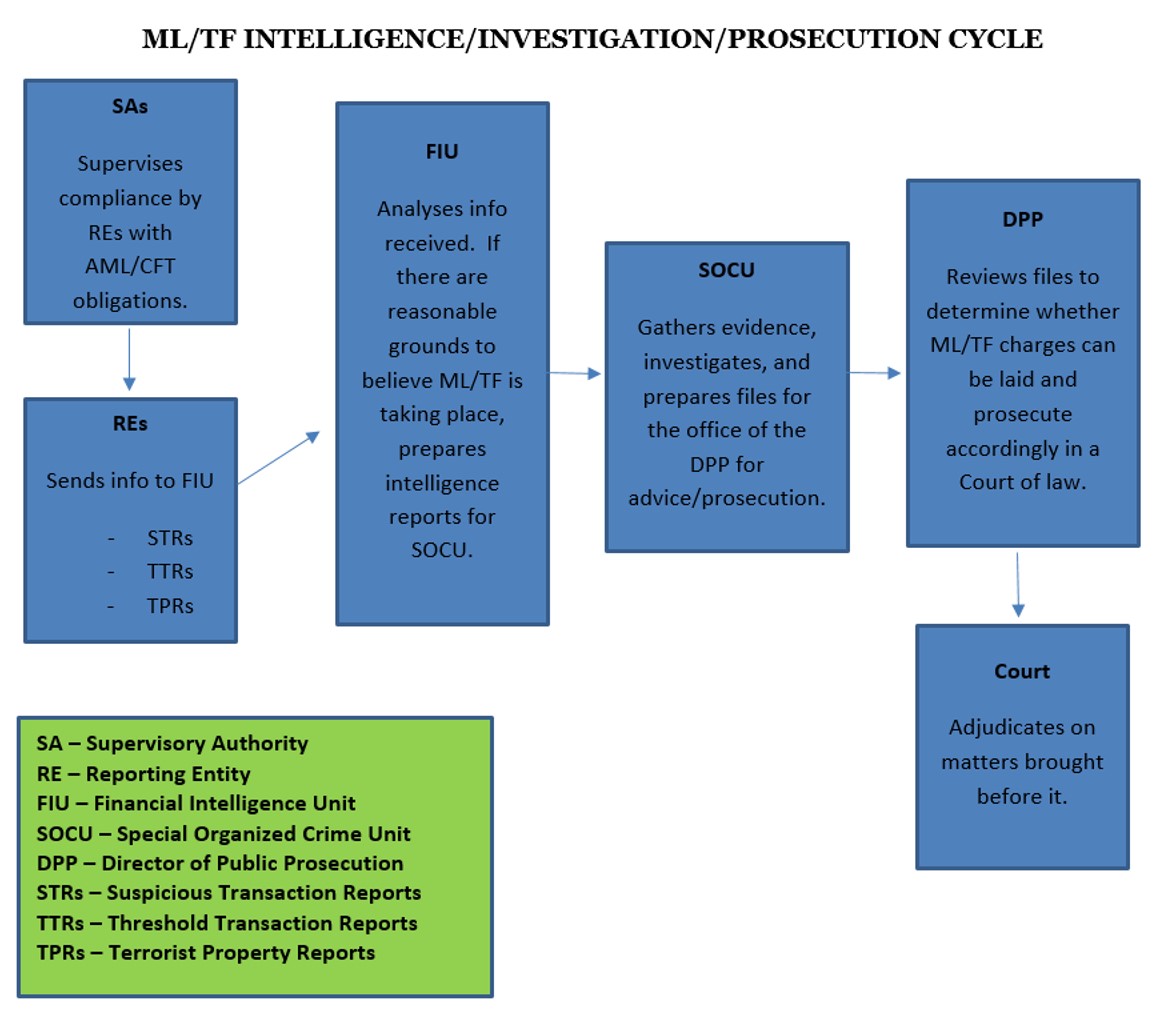Terrorist property report (TPR)
A TPR is a report that a reporting entity must submit to the FIU, whenever it has knowledge that funds or other assets in its possession are for a person or entity that is listed on the United Nations Security Council (UNSC) Consolidated List or listed or specified by order of the Minister of Finance in accordance with section 2(2) of the AMLCFT Act 2009 and UNSCR 1373 (2001).
A TPR must be submitted immediately (without delay) after the person has been identified as having the beforementioned association.
Guidance for terrorist property reporting
To determine whether you are in possession of funds or other assets of a listed person or entity, you must first determine whether any of your customer/client is a listed person or entity, and also whether you are dealing with any funds or other assets of that listed person or entity.
Positive name match relating to listings by the Al Qaida 1267(1999) Sanctions Committee or the 1718(2006)/2231(2015) (on DPRK and Iran) Sanctions Committees or Minister of Finance in accordance with UNSCR 1373.
If there is a ‘positive name match’ meaning that the name of the customer/client appears on the UN Consolidated List (UNSCRs 1267, 1718 and 2231), or Local List (UNSCR 1373), a reporting entity must:
- Take reasonable and appropriate measures to verify and confirm that the customer/client is the listed person or entity before informing the Director-FIU.
This can be done by further checking, in the case of a person, the customer/client’s date of birth, place of birth, nationality, and ID Card/Passport number, and in the case of an entity, the entity’s address and other information, against the information on the UN Consolidated List or Local List. (This will avoid false positive situation where extreme measures may be taken against an innocent person or entity) AND
- If customer/client’s details match, immediately complete and submit a Terrorist Property Report.
- If the reporting entity is in possession or control of any funds or other assets of the listed person or entity the following information must also be included in the report:
- Number of persons
- Contracts or accounts involved
- Total value of the funds or other assets.
Terrorist Property Quarterly Report
A reporting entity is also required to submit Quarterly Terrorist Property Report to the FIU whether or not it had dealings with a listed person or entity. [1] Such reports are due as follows:
- On or before January 7 – for the quarter (October – December)
- On or before April 7 – for the quarter (January – March)
- On or before July 7 – for the quarter (April – June)
- On or before October 7 – for the quarter (July – September)
NOTE:
While the UN Consolidated list contains listings by the Al Qaida 1267(1999) Sanctions Committee or the 1718(2006)/2231(2015) (on DPRK and Iran) Sanctions Committees, it is important to note that the list also contains listings by other Sanctions Committees such as the Sanctions Committee concerning Iraq, the 2127 Committee concerning Central Africa, and the 2374 Sanctions Committee.
Positive name match relating to listings by other Sanctions Committees
If there is a ‘positive name match’ a reporting entity must:
- Take reasonable and appropriate measures to verify and confirm that the customer/client is the listed person or entity before informing the Director-FIU; and
If customer/client’s details match, immediately complete and submit a Suspicious Transaction Report to the FIU.
Maintaining sanctions lists
To determine whether you are in possession or control of funds or other assets of a listed person or entity, you must put in place and implement policies and procedures to-
- Keep your entity updated with the various resolutions passed by the United Nation Security Council on targeted financial sanctions related to terrorism, terrorism financing and proliferation financing (UN Consolidated List), as well as Specified Orders passed by the Minister of Finance (Local List); and
- Maintain an updated and current database of names and particulars of persons or entities designated by the United Nations Security Council Sanctions Committee (UN Consolidated List) or specified by the Minister of Finance (Specified Order List).
The UN Consolidated List can be accessed here: https://www.un.org/securitycouncil/content/un-sc-consolidated-list
Targeted Financial Sanctions (Specified Person/Entity) Order referred to as the “Local List can be accessed HERE: https://fiu.gov.gy/specified-persons/
Conducting screening on customers
A reporting entity must conduct checks on its existing, new and potential customers/clients, via a name-screening and/or internal blacklist database to determine if a customer/client is listed on the UN Consolidated List or the Local List.
A reporting entity must screen its entire customer/client database without delay when informed of new names added to the UN Consolidated List or Local List.
The obligation to conduct screening on customers/clients also includes funds or other assets derived from property owned or controlled directly or indirectly by the listed person or entity. In this regard a reporting entity must conduct checks on-
- Relationship and transactions connected with the listed person or entity.
- Properties or accounts that are jointly owned and/or indirectly controlled by the listed person or entity; and
- Parties related to the accounts including beneficial owners, signatories, power of attorney relationships, guarantors, nominees, trustees, assignees and payors.

